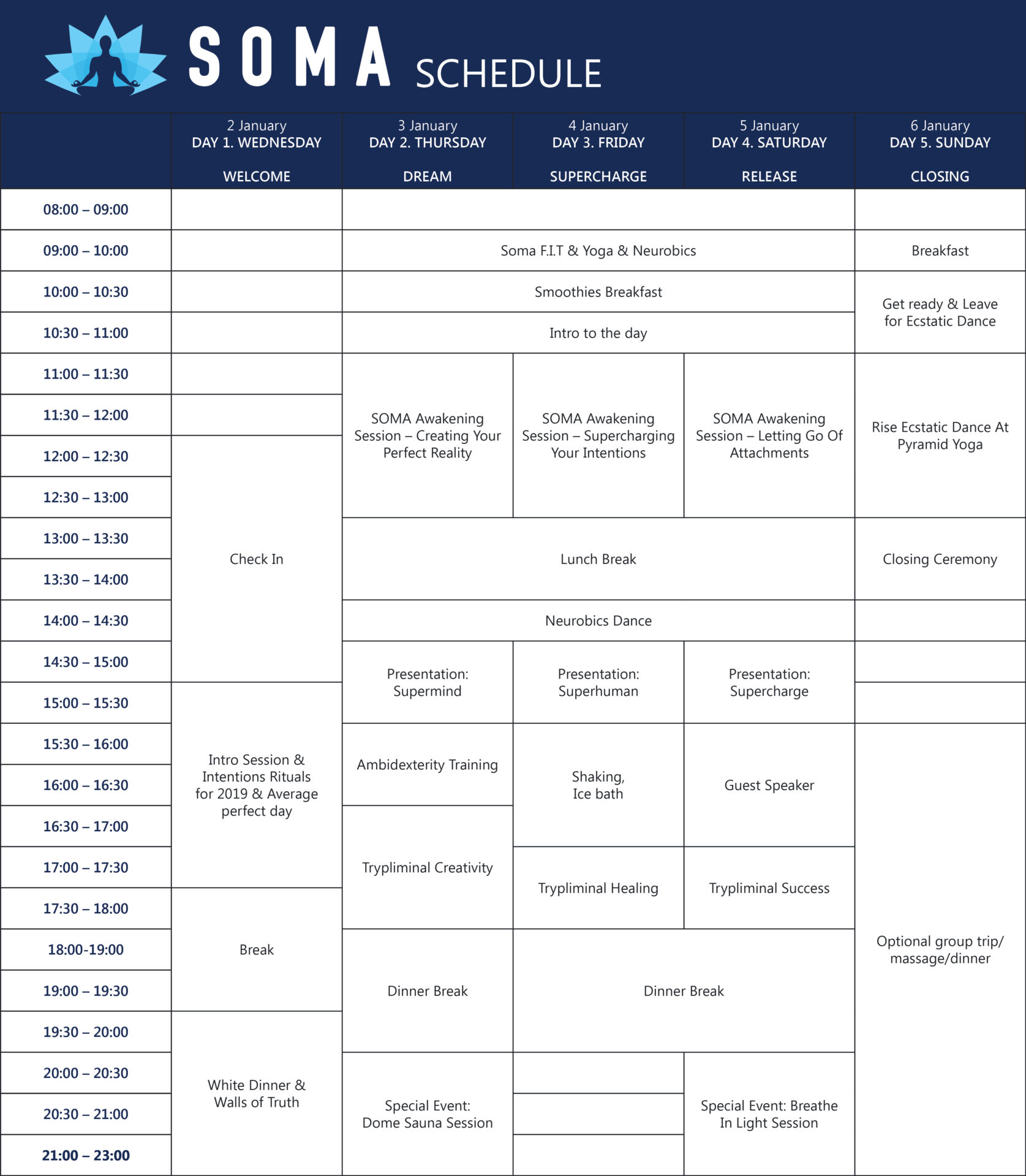Breathing Exercises for Better Sleep
Struggling with sleepless nights? You're not alone. We've all experienced the desire for better sleep at some point in our lives. Poor sleep can lead to a myriad of health issues, affecting our daily lives significantly. Even if you sleep for a good amount of time, you might have noticed the quality of your sleep is not as good as it used to be.
If you have trouble sleeping, there can be plenty of reasons for it, from temporary excitement to more long-term sleep disorders. Sleep quality can also be affected by your eating habits, the amount of blue light you are exposed to, and whether you're a smoker or not.
However, a natural and effective solution lies in breathing exercises for sleep. These techniques, including breathwork for sleep and specific breathing patterns for sleep, offer simple yet powerful ways to enhance your sleep quality. Learning how to breathe better when sleeping can transform your nights, leading to restful, rejuvenating slumber. Embrace these breathing exercises for sleeping and unlock the secret to a better night's rest.
For anyone struggling to get restful sleep or is not waking up refreshed... Free Masterclass
Guided Breathing Meditation for Restful Sleep & Deep Relaxation
In this Masterclass, Niraj Naik takes you through a guided meditation that releases your stress, helps you relax, and propels you into a state of tranquility within minutes so you can get the quality sleep your body really needs.
The Science of Breathwork & Sleep
Breathing exercises influence the autonomic nervous system, which regulates involuntary bodily functions, including the sleep-wake cycle. By focusing on breathing, we can shift from a state of heightened alertness (sympathetic nervous system activation) to a more relaxed state (parasympathetic activation), paving the way for better sleep.
How Does Breathwork Help You Sleep Better?
A simple breathwork routine every day can help you sleep better by quieting the mind and creating a deep state of relaxation and meditation. When you focus on your breath, you will find yourself fully present in the moment.
This breathwork technique helps switch on the parasympathetic nervous system, also known as the state of "rest and digest." This is the perfect state to be in for restful sleep because it encourages your body to produce melatonin, the sleep hormone.
Your blood pressure and heart rate will lower as soon as you do the exercise. If you have a heart rate monitor, you can test this very easily. Even if you don't have a heart rate monitor, you can still feel the reduction just by placing your hand on your heart as you do it.

Benefits of Breathwork for Sleep
Incorporating breathwork into your nightly routine can be a simple yet effective way to address various sleep-related issues, leading to improved sleep quality and overall well-being. Below are some reported benefits of breathwork for sleep.

Enhances Relaxation:
Breathwork activates the parasympathetic nervous system, promoting a state of calm and relaxation, which is essential for initiating sleep.

Reduces Stress and Anxiety:
Regular practice of breathwork can lower cortisol levels and stress hormones, thereby alleviating anxiety and creating a more peaceful mindset conducive to sleep.

Improves Sleep Quality:
By inducing a relaxed state, breathwork can enhance the depth and quality of sleep, leading to more restorative rest.

Regulates the Sleep-Wake Cycle:
Controlled breathing can help regulate the body's internal clock, or circadian rhythm, improving consistency in sleep patterns.

Increases Melatonin Production:
Breathwork can stimulate the production of melatonin, a hormone that signals the body it's time to sleep, thus aiding in faster sleep onset.

Lowers Heart Rate and Blood Pressure:
Slow, deep breathing exercises can reduce heart rate and blood pressure, physical states that are conducive to falling asleep.

Enhances Oxygenation and Detoxification:
Deep breathing increases oxygen flow and can aid in the body's detoxification process, which is essential for restful sleep and overall health.

Reduces Physical Pain and Discomfort:
By promoting relaxation and reducing tension, breathwork can alleviate physical discomfort that might otherwise hinder sleep.

Improves Mental Clarity:
Breathwork can clear the mind, reducing the overthinking and rumination that often disrupt sleep, leading to a more peaceful transition to sleep.

Fosters Emotional Balance:
Engaging in regular breathwork can help balance emotions, reducing the likelihood of sleep disturbances caused by emotional stress or upheaval.
Breathing exercises offer a simple yet effective way to enhance sleep quality. Integrating these techniques into your nightly routine can foster a conducive environment for restful sleep, benefiting your mental and physical health. Embrace the power of breath to unlock the experience of rejuvenating sleep.
Exercises For Better Sleep
Below are some exercises you can perform to improve your sleep. Do these exercises just before you are about to go to bed while lying down. You may find that you will fall asleep much easier and wake up feeling more refreshed and rejuvenated.
1. Imaginary Straw Technique
- Step 1: To begin, find a comfortable position, sitting with your back straight.
- Step 2: Inhale deeply with your nose or mouth.
- Step 3: Form a rounded shape with your lips as if you are holding onto a straw, and gently but slowly breathe out through your mouth. Relax all the muscles in your body as much as possible while you do this.
- Step 4: Imagine a feeling of relaxation washing over your entire body from the top of your head to the soles of your feet and tips of your toes as you exhale.
- Step 5: For a few seconds after every exhale, hold your breath before inhaling again, then repeat the process.
Repeat this flow of breath for 5 to 10 minutes, several times a day, if you like. The more you practice this, the more effective it is at helping you relax - so you can sleep better when the night comes around.
- There are a few enhancements you can add to this for deeper relaxation. Try them out and see if you prefer any of these:
- You can also awaken your parasympathetic nervous system by converging your eyes, either staring down at your nose tip or focusing up where you would imagine your third eye.
- As you breathe out, try making a long, single-toned humming sound. The vibration this creates within and around you will give you a deep feeling of relaxation.
- Silently repeat this mantra: "I command my subconscious mind to fall into a deep sleep and wake up feeling totally refreshed and rejuvenated." This is a very effective self-hypnosis.
2. 4-7-8 Breathing
- Step 1: Sit or lie down comfortably.
- Step 2: Inhale quietly through your nose for 4 seconds.
- Step 3: Hold your breath for 7 seconds.
- Step 4: Exhale completely through your mouth, making a whoosh sound, for 8 seconds.
- Step 5: Repeat this cycle for four full breaths.
3. Box Breathing:
- Step 1: Sit upright, breathing normally.
- Step 2: Slowly exhale all of your air.
- Step 3: Inhale through your nose for 4 seconds.
- Step 4: Hold your breath for 4 seconds.
- Step 5: Exhale through your mouth for 4 seconds.
- Step 6: Hold your breath again for 4 seconds.
- Repeat: Continue for several minutes.
4. Alternate Nostril Breathing:
- Step 1: Sit in a comfortable position.
- Step 2: Hold your right thumb over your right nostril and inhale deeply through your left nostril.
- Step 3: At the peak of inhalation, close off the left nostril with your ring finger, then exhale through the right nostril.
- Step 4: Continue this pattern, alternating nostrils after each inhalation.
- Step 5: Repeat this for 5 minutes.
5. Belly Breathing:
- Step 1: Lie on your back and relax your shoulders.
- Step 2: Place one hand on your belly and the other on your chest.
- Step 3: Inhale deeply through your nose, feeling your belly rise.
- Step 4: Exhale slowly through pursed lips.
- Step 5: Repeat for 5-10 minutes.
6. Diaphragmatic Breathing:
- Step 1: Lie on your back in a comfortable position.
- Step 2: Place one hand on your chest and the other on your abdomen.
- Step 3: Breathe in deeply through your nose, ensuring your abdomen rises more than your chest.
- Step 4: Exhale slowly and fully through your mouth.
- Step 5: Repeat for 5-10 minutes, focusing on the rise and fall of your abdomen.
7. Three-Part Breathing:
- Step 1: Inhale deeply, filling your abdomen, then your mid-chest, and finally the upper chest.
- Step 2: Hold your breath for a moment.
- Step 3: Exhale slowly, releasing air from the upper chest, mid-chest, and finally the abdomen.
- Step 4: Repeat for several cycles, focusing on the flow of your breath.
Practicing these techniques regularly before bedtime can significantly improve the quality of your sleep and help you achieve much better sleep quality so you can wake up every day feeling refreshed and rejuvenated. Remember, the key is consistency and relaxation. So, if you have been feeling sleep-deprived or you just want better sleep, give any of these all-natural sleep aids a try.
ENJOY PEACEFUL, QUALITY SLEEP TONIGHT!
- Induce a state of deep calm in just a few minutes. Simply recline, listen, and engage with the guided meditation crafted to align your brainwaves with a deep state of tranquillity.
- Experience reduced stress and anxiety as your mind harmonizes with this serene state, paving the way for a natural transition into a deep sleep.
- Engage your parasympathetic nervous system to foster relaxation and regulate your daily stress responses, ensuring you achieve the optimal amount of restorative sleep your body requires.
- Activate your body's 'rest and digest' function, transitioning into a mode of restorative slumber. This process aids in healing and recovery, replenishing your energy reserves for when you wake up.
- Greet each morning with renewed vigour and joy. Say goodbye to the struggle of hitting the snooze button. After experiencing such restful sleep, you'll find yourself waking up with enhanced mental clarity and vitality.
Easy & Relaxing
Just lie back, listen, and follow the guided breathing meditation.
No Pills Needed
Experience calm within minutes that will lull you into a deep sleep naturally.
Easy & Relaxing
Wake up refreshed and excited to start the day with mental clarity and energy.
Voices of Transformation: Student Testimonials
Jenny Summerfield
September 11, 2020 at 9:11 PM
I came across SOMA one night when I couldn't sleep it was really good, i ended up having a good night's sleep.
Sí Paz
July 9, 2020 at 7:30 AM
This is my 6th day doing Soma Breathwork. I had a problem that I don't know how to describe it. I have had sinusitis for many years and ultimately I was afraid of sleeping time because during the night it was worse. I had a phlegm on the back of my throat that made me feel I was passing out because I could not cough up. Nights were a nightmare, always afraid of dying suffocated with my own saliva or phlegm.
Thanks to Soma I have been sleeping very well for 3 days in a row. My throat is clean and I can breath much better.
This is amazing! Thank you Soma!!!
Daithi Charles
22 October 20219 at 2:48 PM
Hey guys. I have tried pranayama breathing before and have always rated it highly as an effective vehicle for going inwards. Tried the masterclass in SOMA last night and was blown away! Like far away. I"ve taken ayahuasca a number of times and they are comparable experiences! This is incredible, a revelation!

